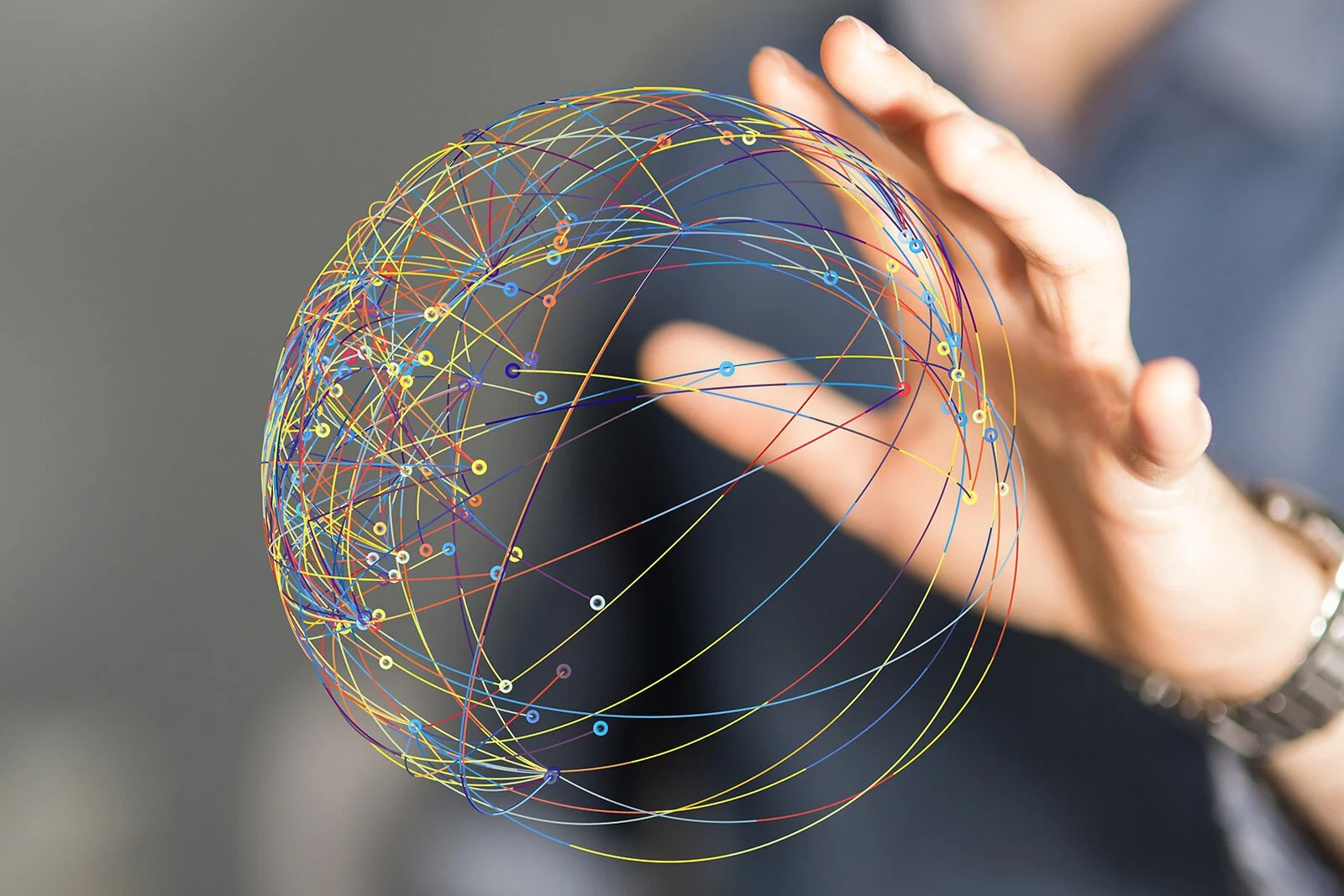READ STORIES THAT MATTER
Ibbaka Skill & Talent Blog
What does data literacy do for you?
Data literacy is one of the central skill sets for 21st C work. But why? What are the goals for data literacy and what impact will it have? Karen Chiang looks at these questions as we begin a research program into data literacy.
Designing a skill competency model - the Ibbaka approach
Design research is used to get a deeper understanding of the different approaches that are taken to a design task. Skill and competency models are part of the designed world. Over the years Ibbaka has evolved its own approach to their design, which we update here.
Design research - How do people approach the design of skill and competency models?
Skill and competency models are designed. As with anything that is designed, there are different ways to approach this. Ibbaka is committed to supporting the diversity of approaches to designing and applying skill and competency models.
How to conduct a skill interview
Skills have been described as the new currency of business. Understanding skills has become an important skillset in its own right. One of the best ways to understand a person or a team’s skills is the skill interview. This is a structured approach that leads to a coded transcript that can be used in many ways in introducing skills.
Building the BC Innovation Ecosystem - an interview with Angie Schick from New Ventures BC
It takes a community to drive innovation. Angie Schick and New Ventures BC are at the heart of the BC innovation community. We interviewed her to get insights into what makes that community tick and the skills needed for community building.
A place that nobody is from, but anyone can go to
With everything changing so much around us, with all the uncertainty and questions about what will happen post-Covid, we should resolve to nurture creativity and see the world through a different set of eyes, or we should say, skills. Creativity, problem-solving, analytical thinking and critical thinking, active learning, and listening are the skills of the future.
Designing a blueprint for your competency model framework
One way to get started with skill and competency management is to build a simple model for a basic competency and then use that model as a template for adding other models. This can work, but attention must be paid from this beginning to scalability and extensibility.
From competency model design to competency model generation
Designing a competency model can be daunting. There is so much information to locate and integrate, so many things to validate and get approved. Is there a better way forward? Ibbaka is using its skill AI to generate competency models. This reduces development costs and timelines while keeping the model dynamic and relevant.
The WEF on Building a Common Language for Skills at Work
The World Economic Forum (WEF) has issued a new (January 2021) report on Building a Common Language for Skills at Work. They give the reasons as to why a global skill taxonomy is needed, propose and architecture and begin to define skills. Ibbaka will support this architecture on the Ibbaka Talent Platform.
"Art is not about itself but the attention we bring to it" — Marcel Duchamp
Skills are the building blocks of Ibbaka Talent Platform. One can create a traditional role by adding several skills and adjusting the required expertise level. However, using a similar set of skills and adding a couple of new ones or changing the context can result in a new career path. It is about career mobility, flexibility and resilience. It is about looking at your job from a different perspective or context that changes everything.
Aligning skill and competency models with microcredentials - a conversation between Don Presant and Kul Sharma
Micro credentials and badges are playing a larger and larger role as people seek career mobility, or just try to find jobs. Ibbaka is working with Learning Agents and the CanCred Factory to make it easier to align micro credentials and competency models. We spoke with Don Presant from Learning Agents and Kul Sharma from Ibbaka about their approach.
From 'what if' to 'why not' - skills open new possibilities
Sometimes acquiring just one skill or increasing the level of competency in another will open the doors to an entirely new career. No need to start over again, and the "what if" question changes to "why not."
Share your thoughts on how talent management is evolving
The debate on nature vs. nurture goes back many centuries. We know both talent (nature) and organizational culture (nurture) come together to driver performance. Talent management is responsible for bringing these together. Ibbaka is conducting a short survey to understand how talent management is evolving as the economy moves towards a post Covid 19 ‘new normal.’
Three Metaphors for Skills and Competencies
Metaphors are central to how we understand the world and think about complex problems. Three metaphors that we apply to skill and competency models are the chemical, the evolutionary and the neural. Each of these provides its own insights and when combined can fuel innovation.
The Skills for Career Mobility - Interview with Dennis Green
Job mobility will not be enough in a rapidly changing economy. We need to go beyond this to support career mobility. Dennis Green both exemplifies this in his own life and has thought deeply about the question. He shares his experience and ideas in this interview.
Organizational Approaches to Skills Assessment - Survey Report
Assessments are an important part of work in skill and competencies. It is human nature to want to know how we are doing and to compare ourselves with others. Ibbaka has been doing research in this area and has just published a report of our findings.
The dark side of convenience
Habits can be a good thing, they help automate certain behaviors and to save energy so that we can concentrate on more important things. Developing, sharing, supporting skills should not be a habit. It should be something you are thinking about for your self, your team, your organization and community.
What are skills? What are competencies? An update on the IEEE 1484.20.2 work on defining competencies
There is often confusion around the definition of skills and competencies. Are these different words for the same thing or do they refer to different things with different uses. The IEEE 1484.20 Defining Competencies standard is a work in progress, but progress is being made on shared definitions for critical terms.
Brian Conlin on the special nature of employee-owned firms and the skills needed to grow them
Brian Conlin has been an important advisor to Ibbaka Talent. As the former CEO of Golder Associates and a CEO coach himself he brings deep insight into the skills needed for success at employee owned enterprises.
See you tomorrow, dad...
My dad passed away on October 17, 2020, after contracting COVID-19. He was 90, working on his last movie. Always full of energy, ideas and ready for a new challenge. Although I know that his passing will never leave me, I hope that crossing tonight through the longest night will close the darkness. Tomorrow will bring a bit more light into our lives, and all the memories will make us stronger and better.




















